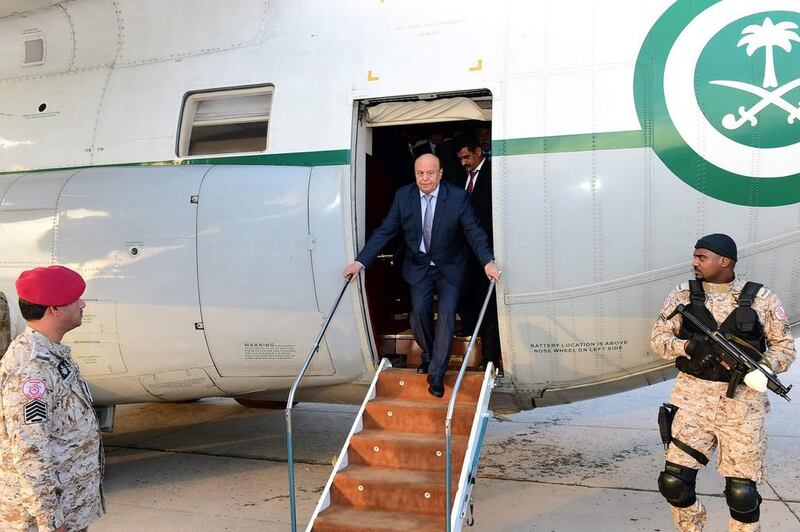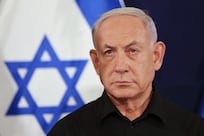Saudi foreign policy, as an Emirati friend once told me, is like a diesel car. It might be slower to take off than petrol cars, but its torque makes it more powerful and effective for heavy-lifting. This analogy might be fitting to describe a drive for change in the kingdom’s foreign policy as a response to recent developments.
There is recognition, not only inside Saudi Arabia but also in the countries surrounding it, that while the Gulf states’ responses to recent geopolitical events have been slow, change in how these countries conduct their foreign policy is under way.
This change towards a more active foreign policy, primarily by Saudi Arabia, will have marked consequences in a neighbourhood already unrecognisable five years after uprisings swept the Middle East and North Africa.
This change is also not driven by domestic insecurities as some analysts have suggested. More often than not, it echoes domestic demand for more effective countering of Iran’s increased activities and to show leadership and independence, rather than revolve in the US strategic orbit.
These attitudes were reflected in the wide support for military intervention against ISIL in Syria in the summer of 2014, and in Yemen in March.
As one Gulf official told me, the environment in the region favours the Gulf states despite Iran reaching a nuclear deal with the international community and the subsequent lifting of economic sanctions.
In addition to popular support for a more assertive engagement in regional affairs, the nuclear-related sanctions on Iran over the past decade undercut economic interdependence between countries on the two sides of the Gulf.
Before the sanctions were imposed on Iran, and even during the initial years of hesitant implementation by some Gulf countries, Tehran attempted to weaken the Gulf’s ability to have a unified economic front against it by diversifying its trade and economic policy towards each member. Much has changed since then and Iranian economic activities in the Gulf have been substantially reduced.
Regardless of how the current crisis with Iran and the relationship with the US will be managed, the Gulf states’ foreign policies are well poised to become more activist, collaborative and assertive, a shift that will undoubtedly shape the region.
In this context, a question must be asked about what happens if this scenario plays out.
For many years, Iran’s activities in the neighbourhood undermined western policies and pushed some to consider alliance with Iran in the hope that it would put out some of the fire it had started in countries such as Iraq and beyond. These calls sometimes went further, suggesting that the US should consider an alliance with Iran at the expense of its traditional Arab allies.
But these voices overstate Iran’s ability to influence events and at the same time underestimate the Gulf’s capacity to inflict greater damage if they follow similar tactics.
If Iran has the power to destabilise the region, only the Gulf states have the power to stabilise it. The concern should remain about what to do about Iran to prevent it from playing an arsonist’s role in surrounding countries.
The last thing the Middle East needs is the disruption of the current order in favour of testing out new alliances and turning friendly allies into disruptive forces.
The US must build bridges without losing sight of the achievements that have taken place over the years and the risks of seeking out fundamental changes often based on wishful thinking and naive understanding of reality.
On the Arab side of the Gulf, such insinuations, even if they are necessarily followed by action, are viewed as a betrayal of constructive efforts they have exerted over the years.
These efforts include the imposition of the very sanctions that led to the nuclear deal with the international community, sanctions that were once resisted by some Gulf countries for their impact on trade with their neighbour.
For now, many in the Gulf states still believe that a fundamental political shift on the part of the US is not feasible. Rather than trepidation and panic, officials in the Gulf express confidence about how dynamics play out in the vicinity.
Change in the way they conduct their foreign policy is nonetheless necessary, not least because of Washington’s diminished regional commitment and in some cases, convergence of interests with Tehran, such as in Iraq and more recently in Syria. They simply cannot count on the US in some places, as many Gulf insiders agree, and they are ready to raise the stakes.
Foreign policy change in the major powers in the Gulf, especially Saudi Arabia, seems under way and probably unstoppable.
This prospective shift comes as the Gulf states become the centre of gravity for much of the politics in the Middle East and North Africa as countries such as Egypt, Syria and Libya look internally.
Contrary to what outsiders say, this change brings with it immense clout for the Gulf states that will render them more entrenched in the region than ever before.
This newfound influence can be an opportunity or a liability for the international community, depending on how it is utilised.
Hassan Hassan is a resident fellow at the Tahrir Institute for Middle East Policy, a think tank in Washington, DC, and co-author of ISIS: Inside the Army of Terror
On Twitter: @hxhassan





